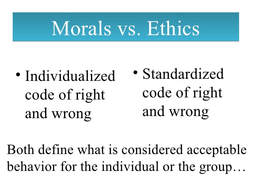
Doing something, or not, based on any scope of one’s personal life – is personal.
Doing something, or not, based on business practices – is professional.
If a potential client contacts our agency and requests our involvement, we do not introduce potential bias or prejudice by asking about age, gender, race, sexual orientation, marital status – or any other personal criteria. Those categories may come up specific to the charges (i.e. defending a ‘hate crime’ assault). At intake, the questions are pretty simple: 1) are we qualified for the case – is it within the scope of our education, training, experience and expertise; and 2) is there a conflict – personal or professional relationship with any parties being the most common.
As the case progresses, we may learn – and often do – of history and actions which are offensive to a reasonable person. The allegations of criminal charges are, by their nature, offensive; or, the defendant’s background may be. Perhaps even the victim’s background is offensive. With the exception of impeachment, character and other needs specified by the attorney-client, these are generally irrelevant to the assignment. Our role is to investigate – we are fact finders – not attorneys, judges, or jury. Our job is based on our Constitution – each aspect of due process. We do not introduce the ultimate bias of assessing an opinion of guilt or innocence, or any degree thereof. We do not judge our role based on if it may, or may not, aid in the finding of innocence or guilt – again, not our purpose. Our role, as professional investigators, is not personal advocacy.
Some will disagree with this position. There is no moral high ground to accepting a case, and then submitting a long-held personal objection when it becomes personally or morally disagreeable. There is no moral high ground to accepting, or rejecting, a case for personal reasons. This is simply cognitive bias.
We are objective in our process, subject to the facts we seek and the parameters – legal and ethical – we work within. The time to object to a case is before accepting it – not after. Once a professional investigator is in, they should be expected and committed to do so, for the duration. Any professional objection which arises, with relevance, needs to be addressed immediately.
As they say, “nothing personal, its just business” – is how it should be. If personal morals will have any role in any investigative or decision making process, the time to object is at intake. Even then, do the objections really have any relevance? Frankly, no. If personal morals will interfere with conducting an unbiased investigation or potential testimony, this is the wrong profession to be in.


